

Installation of a louvered roof system is a worthwhile home improvement project. Choosing the best quality pergola is only the first step in what will be a several-month process. Pergolas, like most large renovation projects, will require multiple levels of permits, approvals, and regulatory inspections. In this post we’ll offer you a primer on the pergola permit process, and some of the considerations that SYZYGY Global can help you navigate.
You may be tempted to skirt local permitting requirements hoping to expedite your pergola project, but this is never advisable. In fact, failing to secure the proper pergola permit will surely place your project in danger of taking exponentially longer than it should. Do not forget, the permitting process is intended to ensure your structure is built safely, and that it abides by all local building codes. Failure to meet permitting and code requirements could result in you having to remove your structure entirely, and you do not want this to come back to haunt you when you plan to sell your home in the future.
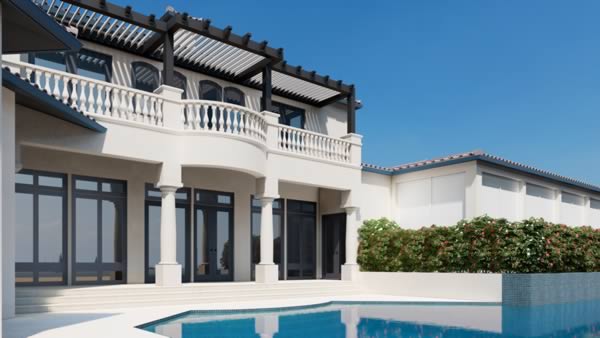
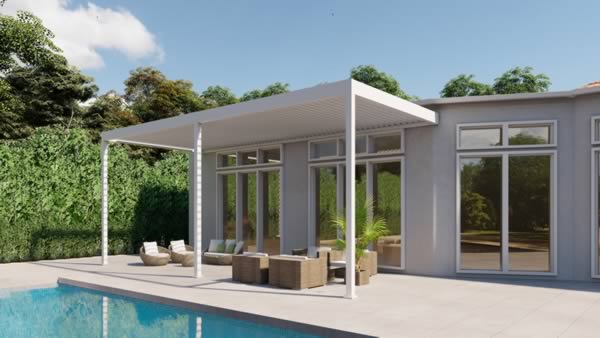
Your local city or county will require you to submit building plans before any pergola project can begin. Submitted drawings also need to be approved by a certified engineer. SYZYGY Global provides these services as part of the construction process. We secure the necessary approvals before your custom pergola order is placed with our manufacturing partner, Azenco.
While permitting is handled at the local level, the State sets minimum safety requirements for all buildings. Additionally, local counties and municipalities will have their own regulations. In Florida, for instance, coastal areas usually have more stringent codes designed to ensure buildings are as safe as possible for routine storms. Navigating these multi-layered state and local regulations must be a specialty of your pergola dealer, like SYZYGY Global.
Some of the most common local building codes impacting pergola projects are focused on structural requirements such as the height of a pergola. Many city codes limit the highest point of a pergola structure to no more than 12 feet above the ground, although this varies from place to place. Regulations also usually detail the required distance between structural support beams on a pergola, space between support columns, depth of foundations or footings, and diameter of support columns. These requirements can also become more stringent in areas where pergolas need to withstand heavy storms.
In Palm Beach County alone, there are 40 different municipalities with 40 different sets of regulations that vary slightly from Gulf Stream to Tequesta to Westgate. Therefore it is important to work with a dealer well-versed in state, county, and municipal divisions.
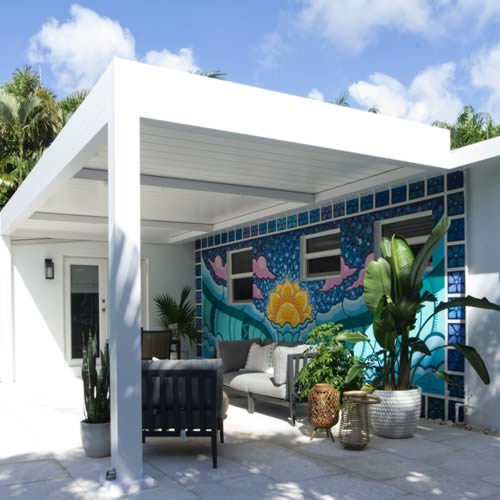
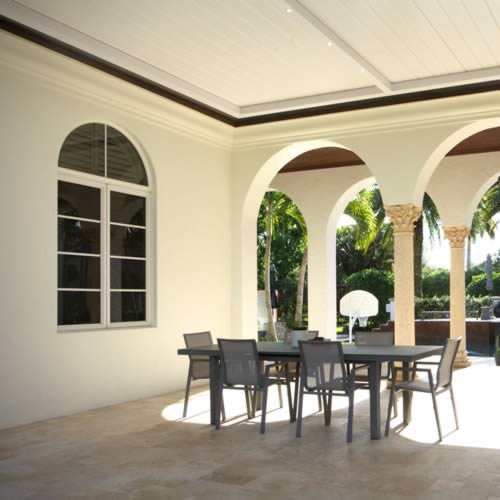
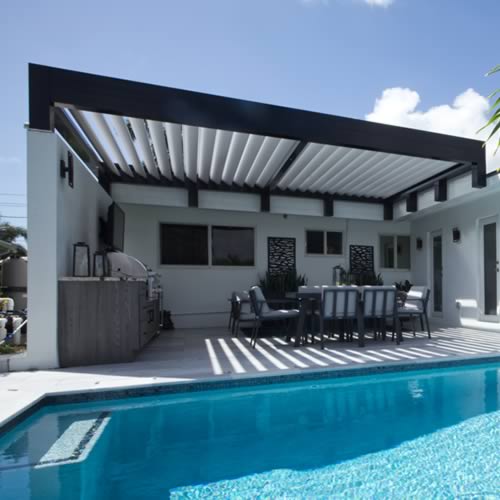
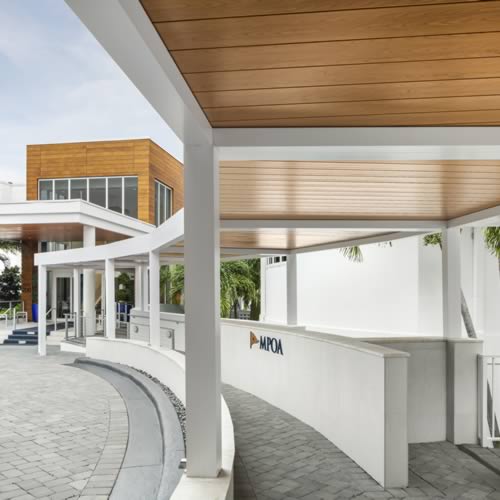
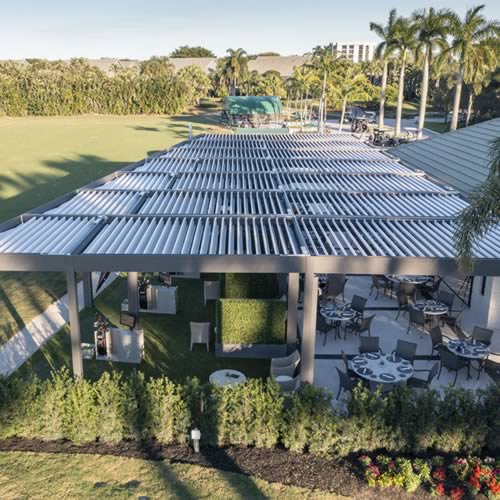
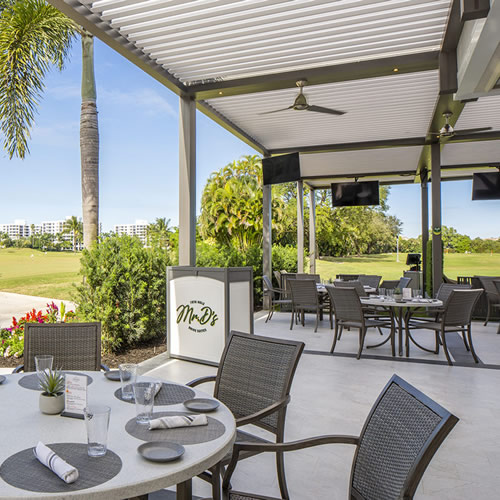
Though homeowner’s associations do not create building codes, they often have covenants that will impact your pergola design. HOA’s often regulate which types of outdoor structures may be erected, and most HOAs will dictate where on the property a pergola can be built along with aesthetic design. If your HOA covenants seem overly restrictive, bear in mind that most of these rules evolve slowly over time. Many rules we have encountered around Palm Beach County have been unchanged for decades. This doesn’t mean you should give up on a pergola for your home. Just make sure to choose a dealer that will work with your HOA board, despite seemingly insurmountable restrictions.
While a pergola permit can prescribe the structure be anchored to a concrete patio or wooden deck, a pergola being built over bare ground will necessitate digging concrete footings as anchors. In these cases, a soil analysis may be needed. A soil engineer will take core samples to determine whether the ground is strong enough to support the structure. This is a service your dealer should routinely offer its clients, like we do at SYZYGY Global.
Building permit costs vary by municipality and scale based on the differing levels of review and approvals required. Many municipalities base permit costs on the square footage of the proposed structure while others derive the fee based on a percentage of the estimated project cost. Whether you live in Juno Beach, Loxahatchee Groves, or Tequesta, always contact your local permitting office for updated fees.
A modern pergola will truly reinvent your home’s outdoor space. However, there is an often complex permitting and approval process that needs to be skillfully navigated to streamline your project’s completion. Here at SYZYGY Global, we have years of experience working with local building departments to secure the necessary pergola permit you need to start your project. If you would like to explore the pergola design options that are possible within your local regulations, contact us to schedule a complimentary consultation.

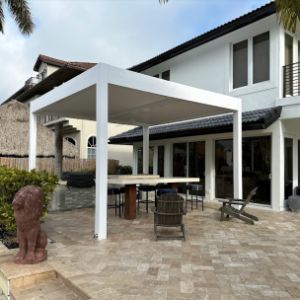
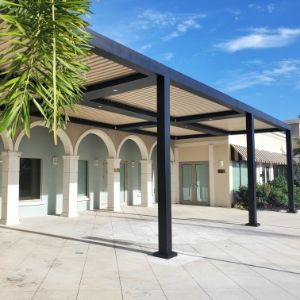
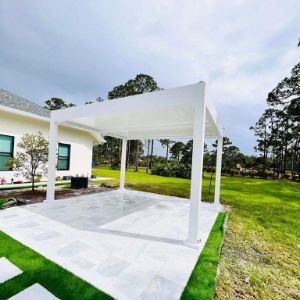
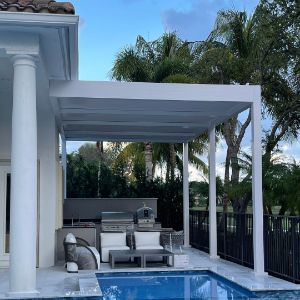
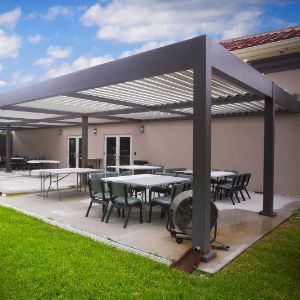
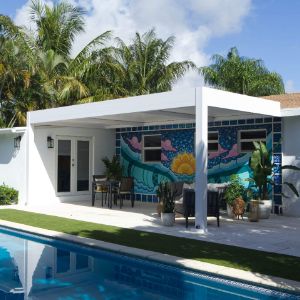
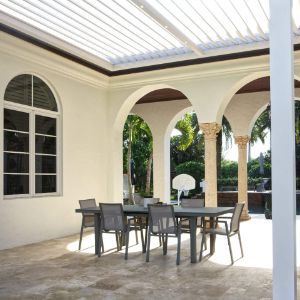


















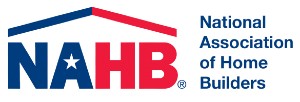
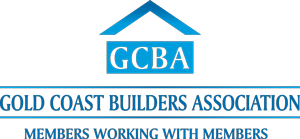


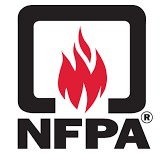


Name
